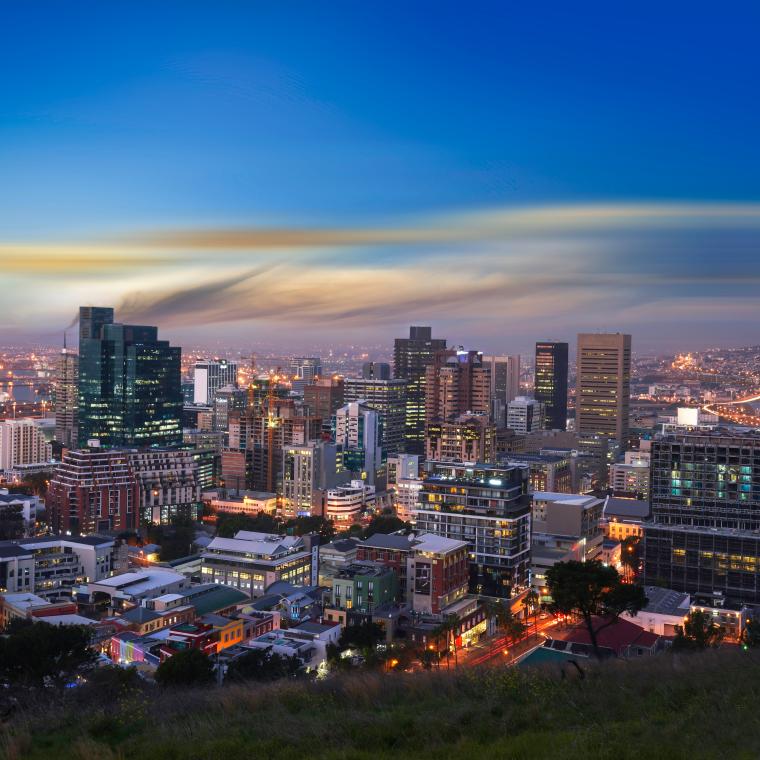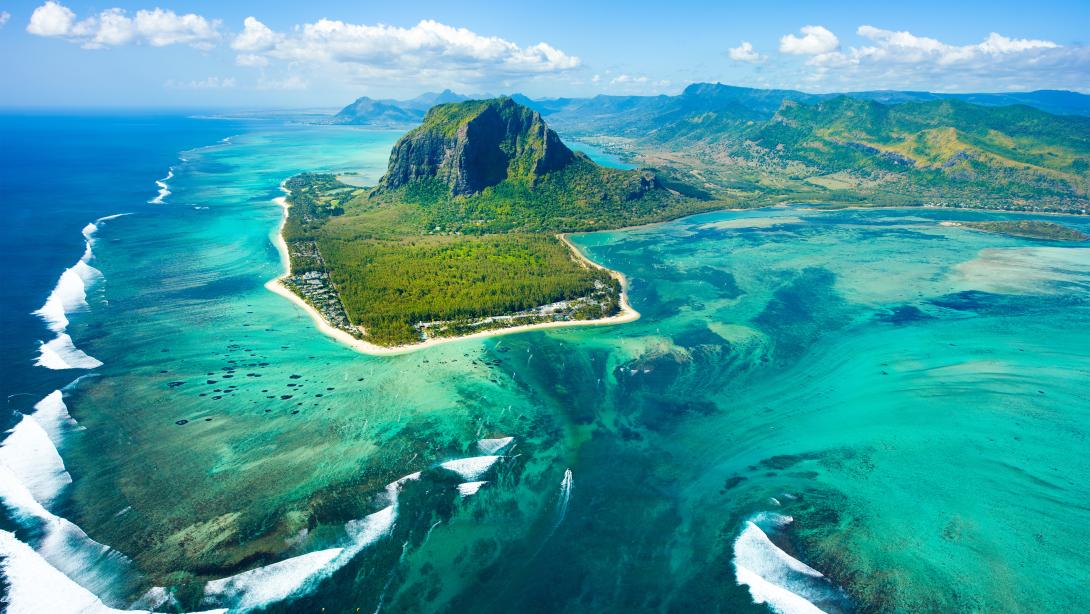
As a renewed 'scramble for Africa' sees foreign investment pouring into the continent from governments and businesses across the world, Mauritius' role as an International Finance Centre is becoming integral for entities wishing to invest in the continent.
"If you think about Southeast Asia 15-20 years ago and how excited everybody was, everyone should be even more excited about the opportunities in Africa."
UK Trade Commissioner for Africa - Emma Wade-Smith
As the 'Star and Key' of the Indian Ocean, Mauritius has been a coveted destination for commerce and trade for nearly two centuries - in 1838 the first banking institution in the Southern hemisphere was established in Mauritius. In more recent years, its hospitable business ecosystem - built on the back of a successful relationship between foreign capital and local business - has seen Mauritius establish itself not just as a prime location for companies wishing to harness the investment opportunities of Asian markets, but also burgeoning African markets.
The gatekeeper to the 'last frontier'
As trade tensions and security issues stunt corporate growth in the developed world, Africa is providing a frontier where entrepreneurship and investing endeavour can find value and long-term growth.
As many Western governments and businesses focus their investments on Asia, Asian investors are targeting Africa as a suitable investment destination and using Mauritius as a springboard into the continent.
From a demographic perspective, investing in Africa makes sense; the ten countries with the most youthful populations are all African-based and by 2050, it is predicted that 30% of the world's under 25s will be African. Add to this the fact that 60% of the world's unused arable land is in Africa, over half a billion Africans are subscribed to mobile services and that by 2020, 50% of Africans will have had secondary or tertiary education, and Africa harbours outstanding potential for investment.
Utilising a dynamic ecosystem
Doing business in Mauritius is both simple and smooth. It is compliant with global best practices in terms of transparency, governance and ethics whilst those looking to establish operations in Mauritius can take comfort in its diversified and growing economy, business-friendly legislation and stable democracy.
Its Global Business sector is committed to innovation and substance across the island, championing a vision to double the revenue generated by the Mauritius IFC to USD 2 billion over the next 10 years. They hope to do this by concentrating on three main economic pillars: cross-border investments, corporate banking and finance and private wealth, each of these being expected to grow at a rate of 5%, 9.6% and 6.7% respectively.
Home to over 12,000 global companies, Mauritius is a proven and trusted destination for global titans such as Deloitte, Eversheds, Accenture and Goldman Sachs - companies that serve as a prominent indicator of both Mauritius' legitimacy, and appeal as a business destination.
For UK companies, many of the opportunities on the island exist across private banking, asset management, cross border investment, captive insurance, reinsurance, Islamic banking and international arbitration. However, with a staggering 98% of all Africa-focussed private equity funds domiciled in Mauritius, the opportunity for investments and long-term growth on the continent's mainland is the major attraction for foreign investors.
To ensure smooth trade from the jurisdiction, Mauritius has 22 Double Taxation Agreements (DTA) and 23 Investment Promotion and Protection Agreements (IPPA) signed with African states. This interconnectivity appeals to investors looking for a well connected and secure launchpad from which to conduct business on the continent.
Its suitability as a business destination is reinforced by its membership of all the major African regional organisations. These include the African Union, the Southern African Development Community (SADC), the Common Market for Eastern and Southern Africa (COMESA) and the Indian Ocean Rim-Association for Regional Cooperation (IOR-ARC).
Foreign investors are also drawn to Mauritius as it offers additional layers of comfort and security in the form of an international abritration centre and a hybrid legal system. The hybrid system draws legal principles from both French civil law and British common law - Mauritius' highest court of appeal is the Privy Council based in London.
The strong relationship between the London Council for International Arbitration (LCIA) and its Mauritian namesake (MIAC) gives greater comfort in the rule of law in Mauritius. This secure framework is bolstered by Mauritius' Organisation for Economic Co-operation and Development (OECD) 'whitelist' status, legitimising it as a jurisdiction adhering to internationally agreed tax standards.
Mauritius - FinTech's sandbox
Mauritius' biggest industry is manufacturing; yet financial services (12.1% with a 5.5% growth rate) and IT (5.6%) are substantial economic pillars of their own. With a robust and dynamic communications infrastructure, there has been a prominent push to establish Mauritius as Africa's FinTech hub. Notably, the successful establishment and subsequent growth of the Mauritius Africa FinTech Hub in late 2018 has spawned an ecosystem that transcends pan-African borders and promotes technological advancement. The Hub's introduction is particularly timely, with the African FinTech sector (according to Ecobank predictions) expected to grow from a $200m market to one worth $3bn by 2020.
A large factor behind this is Mauritius' Regulatory Sandbox Licence (RSL), introduced in 2016. It succeeds in catering for innovative FinTech projects, enabling them to deliver progressive products, services and business models in real markets with real consumers, all with regulatory supervision. This FinTech 'test-centre' approach has attracted a swathe of businesses looking to provide FinTech solutions across Africa and is epitomised by the hosting of the World Artificial Intelligence Show and World Blockchain Summit in November, 2018.
An island school
Mauritius' attraction and success as a place of business has been helped by its focus on education. Education has been key to moving it from a mono economy reliant on agriculture, to a diverse, business-orientated ecosystem which is being used as a model for other African nations.
The Mauritian government is keen to move the country to a high income society and in order to succeed, the government - in tandem with investors - have been offering financial incentives for Mauritians and other Africans to attend university, further upskilling the country's workforce. In 2015 alone, there were 35 UK universities and awarding bodies offering UK qualifications in Mauritius.
With a 93% literacy rate, a bilingual and skilled business population, Mauritians provide UK businesses and investors with a certain degree of comfort, knowing that their interests will be handled in a familiar fashion.
A springboard into Africa
As Africa garners increasing amounts of interest from foreign investors, Mauritius provides the complete toolbox to help facilitate businesses with ambitions on the continent. Its dynamic and established business ecosystem is matched by its appetite for innovation and commitment to educating its populous, factors making Mauritius Africa's intravenous investment vessel of choice.
At Ocorian we provide private client, corporate and fiduciary services, including the establishment and ongoing administration of Mauritian global businesses, trusts, funds, limited partnership structures and foundations.
With over 300 local 'feet on the ground' in Mauritius, our flexible and commercial service provides an exciting platform for our clients to invest into the burgeoning markets of Africa, India and the Far East.
To find our more about Ocorian's Mauritian offering and how we can help you, click here or reach out to one of our key Mauritian contacts below.
Related Items
View all
